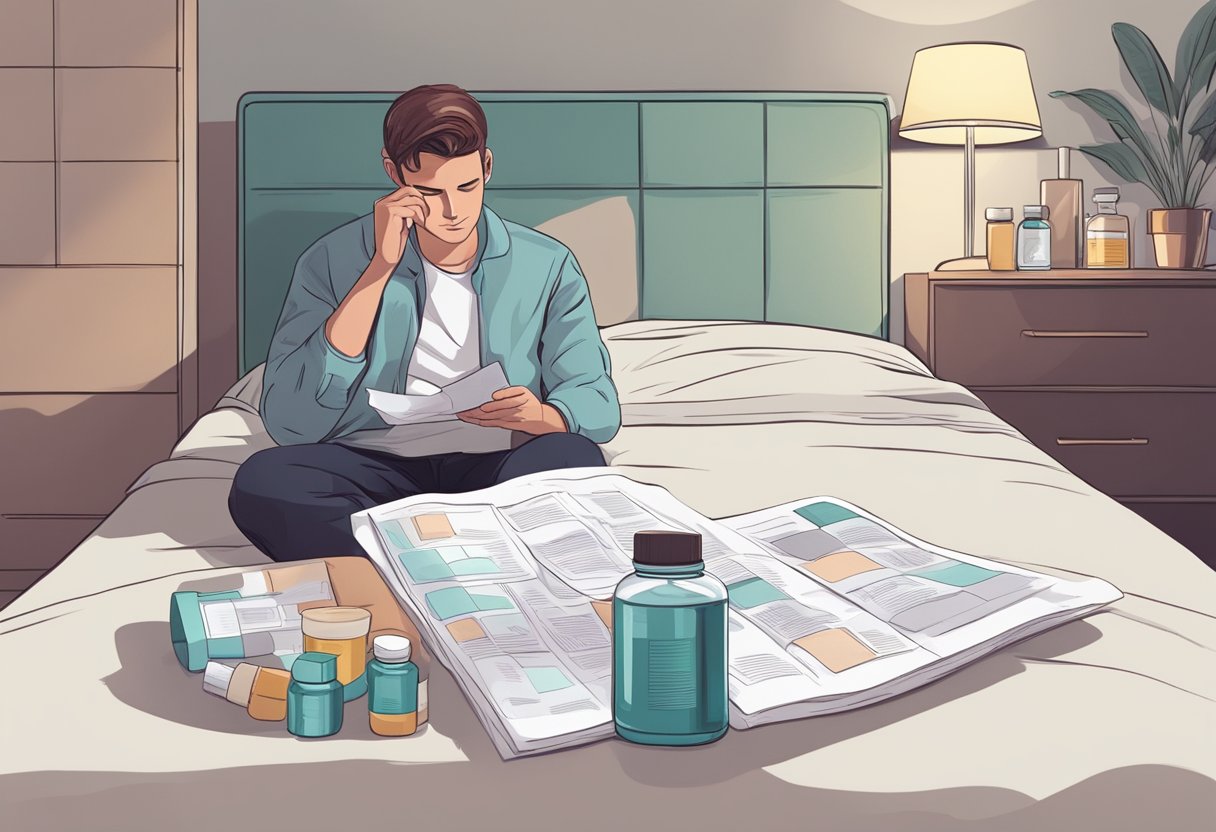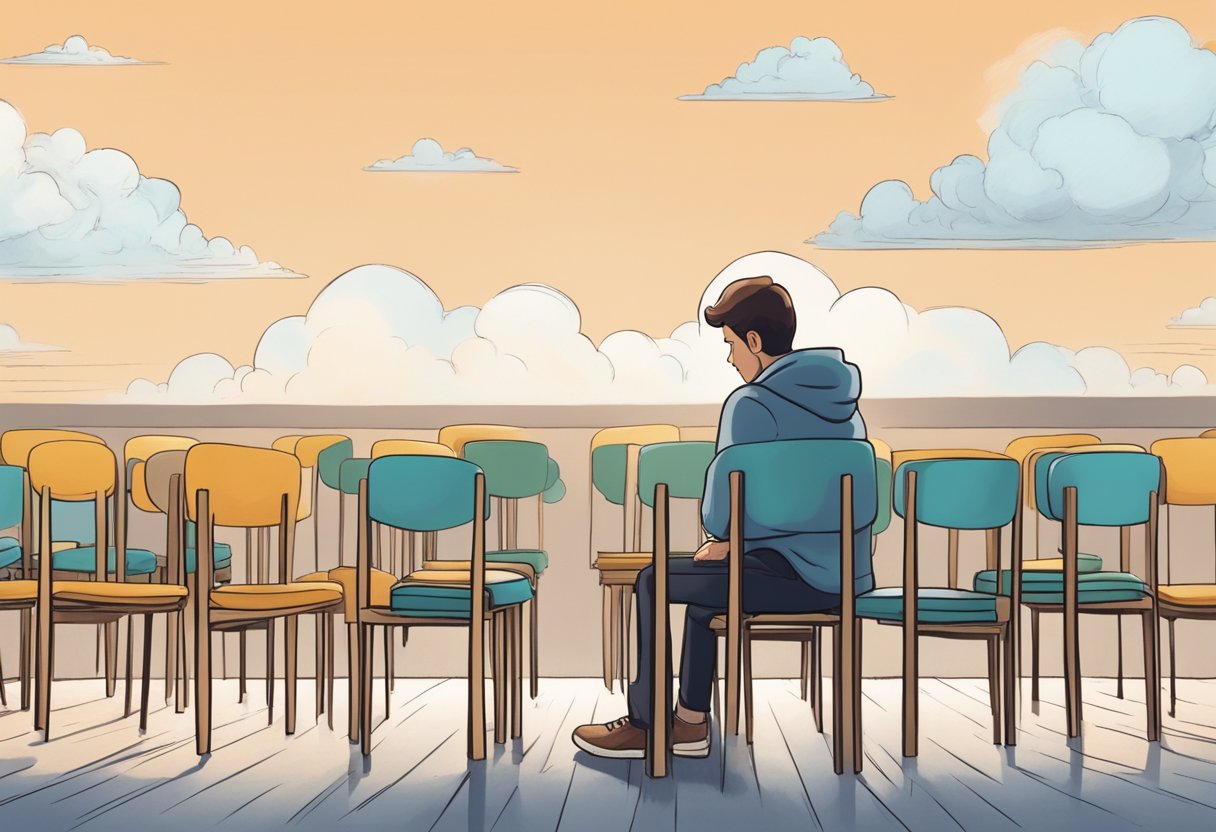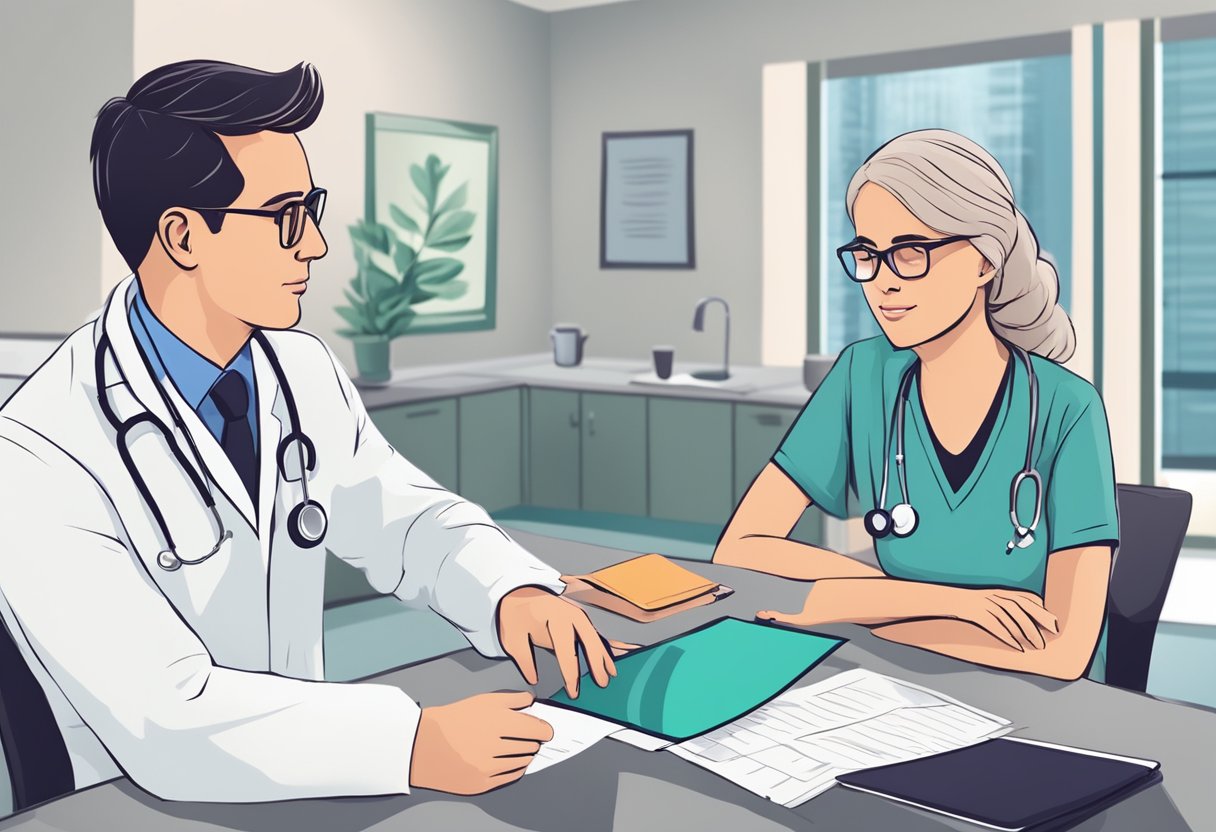Uncover the reasons behind low libido and gain insight into effective remedies with expert advice.
Table of Contents
Introduction – Low Libido
Low libido, or a reduced interest in sexual activity, can affect anyone and may vary in intensity and frequency from person to person. Sexual desire is a complex interplay of both biological and psychological factors that can fluctuate over time due to various circumstances. Common considerations in understanding low libido include recognizing the impact of lifestyle, stress, relationships, and individual differences.

Factors from medical conditions such as diabetes, high blood pressure, and hormonal imbalances to medications can influence sexual health and desire. Emotional closeness and a robust social connection are also significant in fostering a healthy sex drive. When these aspects are disrupted, it could lead to a decline in libido. Fortunately, diverse treatment options, ranging from medication adjustments to therapy, are available to improve low libido.
Key Takeaways
- Low libido is influenced by both biological and psychological factors, varying between individuals.
- Medical conditions, medications, and social relationships can significantly affect sexual desire.
- A range of treatments is available to address and improve low libido.
Understanding Low Libido

Low libido reflects a decrease in sexual desire that can be attributed to a range of physiological and psychological factors. It can affect both men and women, posing potential challenges to intimate relationships.
Physiological and Psychological Causes
Several medical conditions may lead to reduced sexual interest. Low libido in men or individuals assigned male at birth (AMAB) can often be correlated with low testosterone. For individuals assigned female at birth (AFAB), factors such as low estrogen levels may contribute. Psychological concerns, including low self-esteem, a history of abuse, and past negative sexual experiences, also play a significant role. The Cleveland Clinic and Mayo Clinic provide deeper insight into these causes.
Effects of Aging on Libido
Aging brings about changes that can affect libido. While aging is a natural process, it can lead to a decline in sexual function and libido, partly due to the body’s reduced hormone production. Men experience a gradual decrease in testosterone production, whereas women undergo menopause, marked by a significant drop in estrogen levels. This can be found in detail on Healthline.
The Role of Hormonal Changes
Hormonal imbalances can significantly impact libido. In women, menopause presents the most dramatic hormonal shift, leading to lower libido. Contraceptives are also noted to influence hormone levels and can decrease sexual desire. In men, conditions causing low testosterone levels are closely tied to sexual dysfunction. The effects of hormonal changes on libido are explored by the Mayo Clinic News Network.
| Key Findings | Source URL |
|---|---|
| Low testosterone linked to low libido in men | Cleveland Clinic |
| Estrogen levels impact female libido, especially during menopause | Mayo Clinic News Network |
| Aging affects hormonal balance and sexual function | Healthline |
| Entities | Related Keywords |
|---|---|
| Libido, condition | causes, sexual dysfunction |
| Testosterone, estrogen | hormone levels, menopause, aging |
Impact of Medical Conditions and Medications

Several medical conditions can adversely affect sexual desire, and numerous medications may contribute to decreased libido. Understanding these impacts is crucial for addressing low sexual drive effectively.
Chronic Illnesses Influence on Sexual Desire
Chronic illnesses such as diabetes, cardiovascular disease, and hypertension can lead to a reduction in sexual desire. The psychological and physical strain of managing a long-term illness often weighs heavily on a patient’s libido. For instance, individuals with diabetes may experience hypoactive sexual desire disorder (HSDD), where the desire for sexual activity decreases significantly.
Medication-Induced Sexual Side Effects
Certain medications, including some antidepressants and high blood pressure drugs, are known to cause sexual side effects. These medications can lead to difficulties in achieving an erection or a decrease in sexual drive. It is essential for healthcare providers to discuss potential side effects with their patients as they can significantly impact a patient’s quality of life.
Psychological Conditions and Sexual Interest
Psychological conditions play a pivotal role in one’s sexual drive. Mental health issues such as depression and anxiety can profoundly diminish interest in sexual activity. Furthermore, the use of particular drugs and alcohol can also alter sexual desire, often leading to decreased libido.
| Key Findings | Relevant Information |
|---|---|
| Chronic Illnesses | Long-term medical conditions like diabetes can cause HSDD |
| Medication Side Effects | Antidepressants and drugs for high blood pressure may reduce libido |
| Psychological Impact | Mental health issues and substance use can lower sexual drive |
| Cited Sources |
|---|
| SingleCare |
| Cleveland Clinic |
| Healthline |
| Mayo Clinic Press |
| Forbes Health |
Social and Emotional Factors

Social and emotional factors play a significant role in an individual’s sexual desire. They can deeply influence libido through interpersonal relationships, mental health status, and lifestyle choices.
Relationship Dynamics and Libido
Libido is often directly affected by the dynamics of a person’s relationship with their partner. Issues such as lack of emotional connection or unresolved relationship conflicts can lead to decreased sexual interest. For instance, a study suggests that emotional closeness and the quality of the marital relationship are significant predictors of sexual desire.
Mental Health and Sexual Desire
Mental health concerns like depression and anxiety can also significantly dampen one’s libido. Clinical depression, for example, can lead to a loss of interest in pleasurable activities, including sex. Conversely, anxiety can induce feelings of unease that make sexual engagement unappealing.
Lifestyle and Stress Contribution
An individual’s lifestyle, including their management of stress, can have profound implications for sexual desire. Chronic stress may reduce sexual interest by affecting hormone levels or causing fatigue. Additionally, perceptions of body image can impact libido, as those with negative body images may experience inhibited desire.
| Key Finding | Relevance |
|---|---|
| Relationship issues can lower libido. | Cleveland Clinic |
| Depression and anxiety are linked to decreased sexual desire. | Mayo Clinic |
| Stress and lifestyle affect libido. | Medical News Today |
Keywords: relationship issues, partner, emotional connection, depression, anxiety, lifestyle, stress, body image
Diagnosis and Treatment Options

When addressing low libido, it’s crucial to undergo a thorough professional evaluation to pinpoint the underlying cause, which then informs the treatment approach. Treatment options vary widely and can include behavioral therapies, pharmacological interventions, and in some cases, hormone therapy.
Professional Evaluation and Diagnosis
A gynecologist, urologist, or primary care physician can assess the patient’s overall health status and testosterone levels to determine if any underlying medical conditions contribute to low libido. They may also evaluate medications the patient is currently taking, as some can impact sex drive.
Keyword: Diagnosis, Gynecologist, Physician, Testosterone levels
| Criteria for Diagnosis | Source URL |
|---|---|
| Medical history evaluation | Cleveland Clinic |
| Physical examination | Cleveland Clinic |
| Assessment of testosterone levels | Mayo Clinic |
Behavioral and Psychological Therapies
It is recommended that individuals explore behavioral and psychological therapies, often guided by a sex therapist or counselor. These therapeutic strategies are aimed at enhancing sexual desire and alleviating any psychological barriers. Counseling can also address relationship factors that may be affecting libido.
| Key Behavioral Interventions | Source URL |
|---|---|
| Counseling | Mayo Clinic |
| Sex therapy | Mayo Clinic |
Pharmacological Treatments
For some patients, pharmacological treatments may be beneficial. These can include FDA-approved medications designed to enhance libido. Hormone therapy, specifically the use of testosterone, may be recommended for postmenopausal women, although it is not universally approved and should be used with caution.
| Pharmacological Treatments | Source URL |
|---|---|
| FDA-approved medications | Mayo Clinic Press |
| Testosterone therapy options | Mayo Clinic |
Improving Low Libido

Improving low libido involves a multifaceted approach, from making lifestyle modifications and embracing natural remedies to incorporating exercise tailored to enhancing sexual health. Equally important is the art of communication with one’s partner.
Lifestyle Modifications and Natural Remedies
One can posit that lifestyle choices play a pivotal role in sexual health. Ensuring adequate rest and managing stress levels are crucial elements. Opting for a balanced diet and potentially including supplements like ginkgo biloba or L-arginine may aid in arousal and pleasure. Educating oneself about sex education also eradicates myths and anxiety.
| Lifestyle Changes | Key Findings | Source |
|---|---|---|
| Adequate Rest | Enhances libido | Cleveland Clinic |
| Stress Management | Reduces cortisol levels, potentially boosting libido | Healthline |
| Balanced Diet | Supplies vital nutrients for sexual health | Forbes |
| Sex Education | Reduces sexual anxiety | Healthline |
Exercise and Sexual Health
Regular exercise improves overall health and significantly increases blood flow, which is essential for sexual function and libido. Both cardiovascular exercises such as running and swimming, and strength training exercises, can lead to improved sexual health.
| Exercise Type | Benefits to Sexual Health | Source |
|---|---|---|
| Cardiovascular | Improves heart health and blood flow | Forbes |
| Strength Training | Increases stamina and body image confidence | Healthline |
Communicating with a Partner
Effective communication with a partner can address underlying relationship problems that may affect libido. Openly discussing desires, expectations, and concerns brings transparency and may improve intimacy and pleasure. Consulting a therapist might be helpful if communication alone doesn’t resolve the issues.
| Communication Aspect | Impact on Libido | Source |
|---|---|---|
| Transparency | Improves intimacy and sexual satisfaction | Cleveland Clinic |
| Therapy | Can address deep-rooted relationship issues | My Doctor Online |
Frequently Asked Questions
This section addresses some of the most common inquiries related to low libido, offering direct responses based on current understanding and treatments.
What are common treatments for low libido in women?
In women, treatments for low libido often focus on the underlying causes, which may include hormonal imbalances or psychological issues. Hormone therapy, such as estrogen or testosterone, can be prescribed, particularly after menopause. Non-hormonal options such as therapy, lifestyle changes, and counseling are also recommended.
| Treatment Method | Details | Relevant Keywords |
|---|---|---|
| Hormone Therapy | Used to address estrogen or testosterone imbalances | Hormonal imbalances, estrogen, testosterone |
| Lifestyle Changes | Can include exercise and stress management | Psychological issues, exercise, stress management |
What are noticeable signs of low libido in men?
Men may exhibit signs such as a reduced desire for sexual activity, difficulties in maintaining an erection, and a lack of sexual fantasies. These signs can be psychological or physical in nature.
What options are available for treating low libido in men?
Treatment for men can include testosterone replacement therapy if low levels are detected. Other options are medications for erectile dysfunction, counseling, and lifestyle modifications such as improving diet and increasing physical activity.
At what age do men typically experience decreases in libido?
While it can vary, men typically begin to experience a decrease in libido from their mid to late 50s, coinciding with a natural decline in testosterone levels.
What are typical symptoms that might indicate low libido?
Symptoms indicating low libido can include a reduced interest in sexual activity, absence of sexual thoughts or fantasies, and concern or distress about one’s sex life. These can manifest in both men and women.
What could be contributing factors to low energy and decreased sexual desire?
Contributing factors can range from psychological conditions like depression and anxiety to medical issues such as hormonal imbalances. Lifestyle factors, such as sleep patterns and physical activity levels, also play a significant role. High stress can lead to increased cortisol levels, which has been linked to decreased libido.
